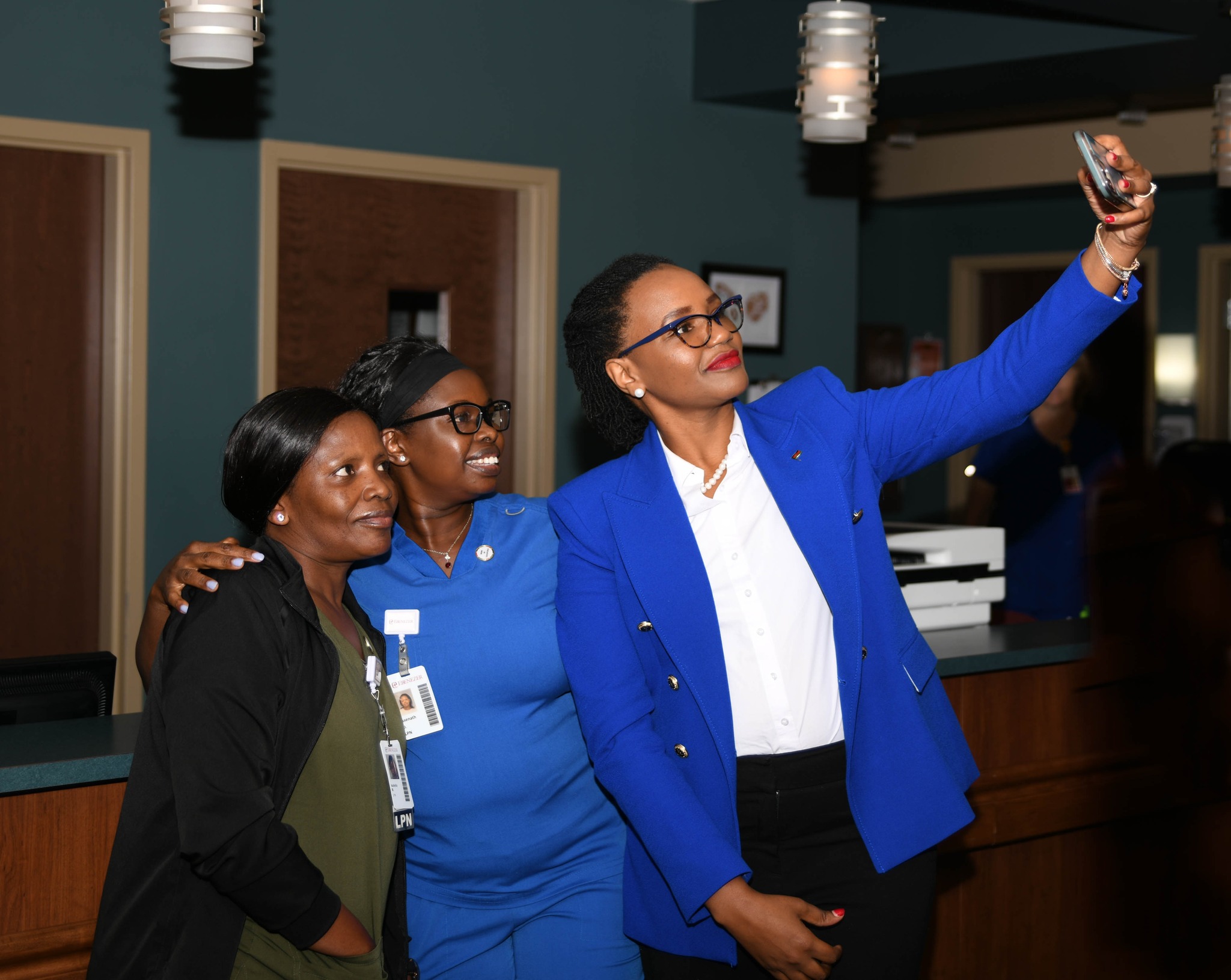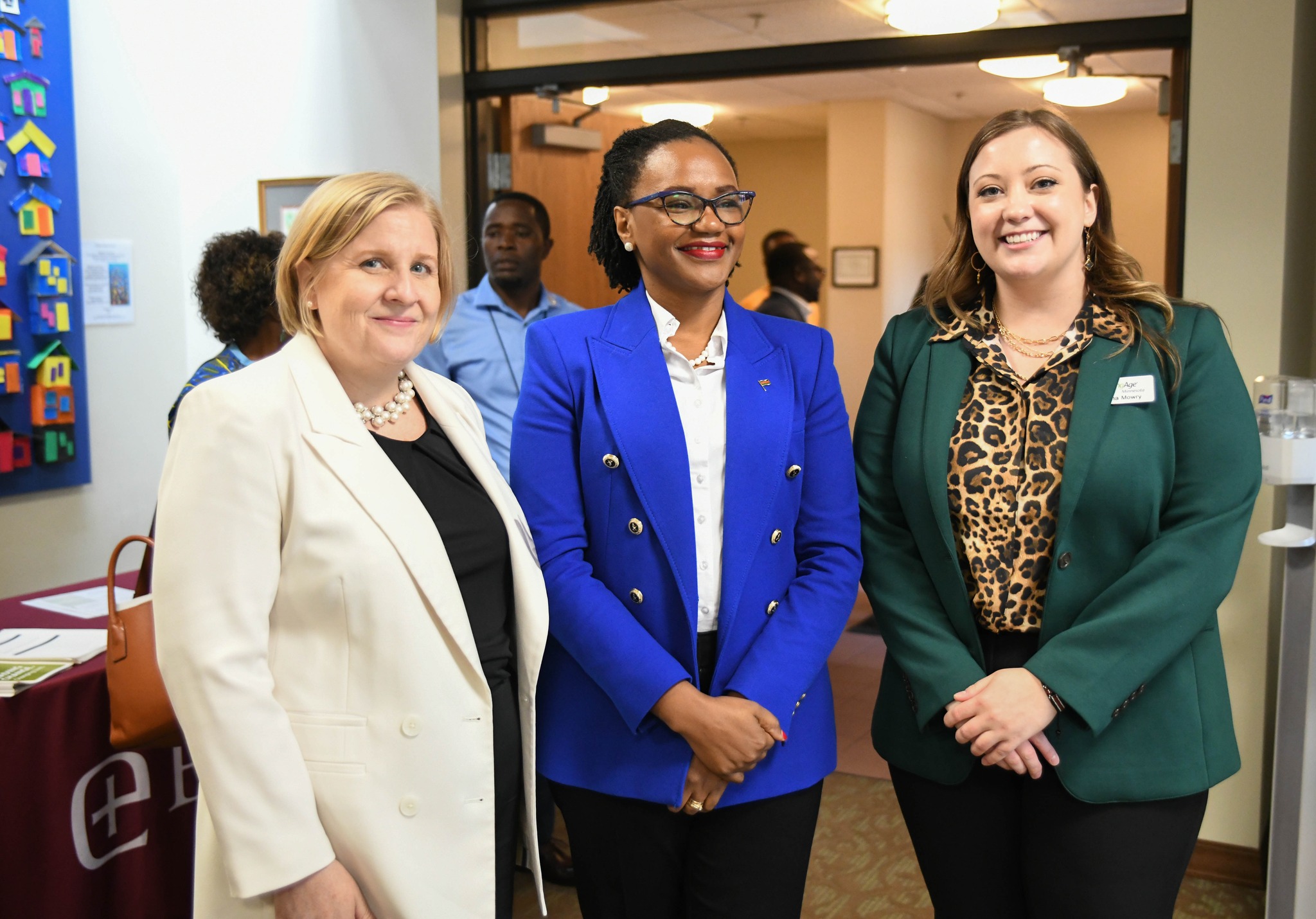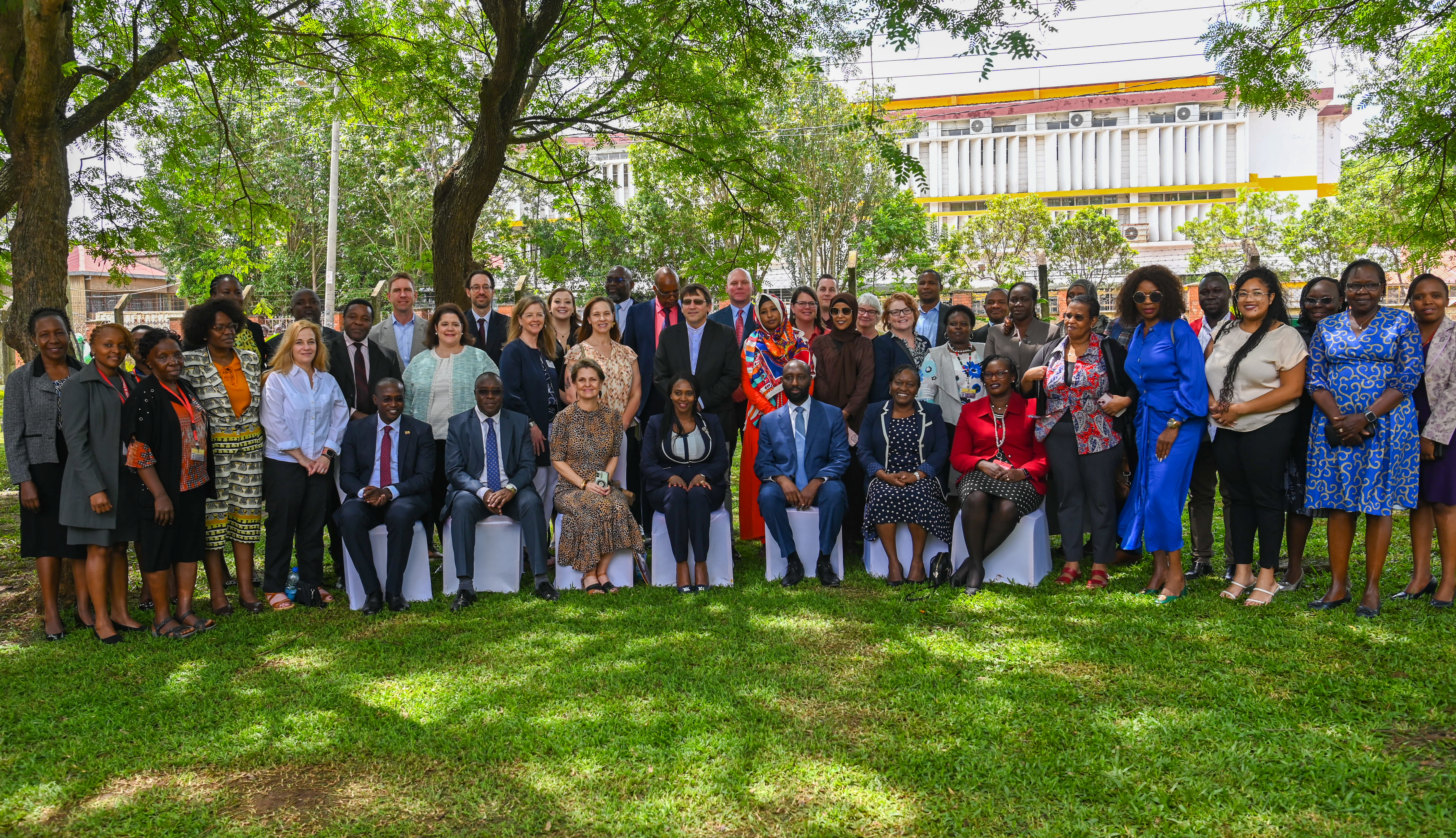Building Bridges: Supporting New Americans in Long-Term Care
$1 million grant initiative to bridge pathways between New Americans and senior care employers.
The LeadingAge Minnesota Foundation is investing nearly $1 million to support new Americans in the aging services workforce with grant funding from the Minnesota Department of Human Services’ Grant, Equity, Access, and Research (GEAR) Division. Through this transformative investment, we aim to strengthen a supportive bridge between the new Americans seeking meaningful careers and the senior care providers who are eager to employ and welcome them into their communities.
Learn more and get involved.
Until June of 2026, we will be developing resources for both new Americans and aging services employers. Translated training materials for English-language learners, employee assistance funds, and other supportive services will be provided to new Americans to ensure they can pursue meaningful roles and leadership within the aging services sector. In addition, senior care employers will benefit from new resources and collaborative learning opportunities to build capacity in recruiting and retaining diverse populations and foster inclusive, welcoming communities.
More information will be coming soon on how members can get involved in this work, including opportunities to serve on advisory groups, participate in new educations and trainings, and much more. To get connected with upcoming opportunities, please contact Kirstan Ketter, Foundation Project Manager.
This work will help tackle our greatest and growing challenge—workforce.
Minnesota’s aging population is booming—a historic demographic shift that will have far-reaching impacts on the state. By 2030, more than one in five Minnesotans will be over the age of 65. Further, between 2030 and 2050, the number of 85+ year olds will triple. Yet over 18,000 job openings in key caregiver positions remain vacant in senior care organizations across the state, limiting access to care and straining the healthcare system. To ensure access to quality care and services, we must prioritize innovative solutions and investments to expand efforts for foreign-born workers, new Americans, and refugees within our state to find meaningful careers and advancement opportunities.
The significant contributions of the foreign-born workers already within our aging services sector are undeniably impactful. When compared with other sectors, Minnesota’s senior care workforce is one of the most diverse in the state. According to a 2023 Lightcast report, nearly 1 in 3 nursing assistants and nearly 14% of Minnesota’s overall healthcare workforce are immigrants.
In 2023, the LeadingAge Minnesota Foundation partnered with PHI, a national leader in supporting direct care workers, to engage in in-depth research on DEIB opportunities for the senior care sector. In 2024, a group of Minnesota long-term care leaders and LeadingAge Minnesota staff traveled to Nairobi, Kenya. Under the leadership of Mohamud Noor, a member of the Minnesota House of Representatives and the Kenya State Department for Diaspora Affairs, we celebrated achievements that will allow new pipelines of African nurses to explore opportunities to work abroad—ideally in our great state of Minnesota. Then in May, LeadingAge Minnesota partnered with Ebenezer Ridges Campus to host a special event to welcome Honorable Principal Secretary of Kenya Diaspora Affairs, Ms. Roseline K. Njogu, along with leaders from Kenya and Minnesota to further deepen these relationships.


These collaborations and the guidance of expert research will help drive the LeadingAge Minnesota Foundation throughout the work of these new grant-funded initiatives, ultimately to improve the experience for our caregivers and the older adults and communities they serve.
About The LeadingAge Minnesota Foundation
The LeadingAge Minnesota Foundation is a nonprofit, intermediary grantmaking foundation to its affiliate, LeadingAge Minnesota, and seeks to transform and enhance the experience of aging by incubating new ideas and concepts to support workforce initiatives, care redesign and research.

